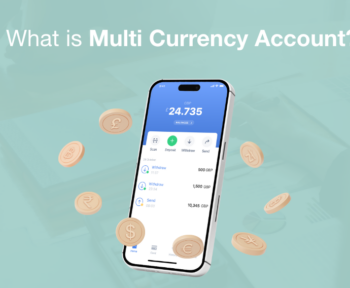The growing cryptocurrency sector develops innovative trading methods for digital currency assets. The dynamic evolution of the cryptocurrency market creates new opportunities and inventive strategies which benefit industry participants.
Peer-to-peer trading platforms appeared in the cryptocurrency space and then expanded to serve as primary catalysts for sector growth. Peer-to-peer cryptocurrency exchanges stand as a newly developed innovation within digital currency systems.
Peer-to-peer trading platforms are abbreviated as P2P in cryptocurrency world and traditional centralized exchanges function through different operational processes. This guide provides new cryptocurrency entrants with peer-to-peer exchange details and offers knowledgeable individuals insights into various exchange models.
Our primary objective is to explore peer-to-peer transaction systems by contrasting them with conventional crypto exchanges while assessing the pros and cons of decentralized trade mechanisms. Prepare to explore decentralized peer-to-peer cryptocurrency exchanges. Let’s take a deeper look!
What is a Peer-to-Peer (P2P) Exchange?
P2P cryptocurrency exchanges enable users to trade directly with each other without intermediary involvement whereas centralized exchanges serve as transaction mediators.
Users create trading offers on P2P platforms where others can find these offers to conduct direct trades without middlemen. Peer-to-peer exchange transactions occur in the absence of centralized platforms and order books and avoid third party fund management.
During trading sessions, traders hold their cryptocurrencies in their personal wallets rather than moving them to exchange wallets. Traders need to retain uninterrupted command of their private keys and assets throughout the trading process. A trade does not become legitimate until both parties involved give their agreement.
Peer-to-peer exchanges and centralized exchanges operate differently because peer-to-peer exchanges have several unique characteristics.
- Decentralized model: No central entity holds or manages funds. Users interact directly with each other.
- Escrow-free: Users must maintain personal wallet control over their funds until transaction confirmations are received from both trading parties. No escrow service is required.
- No order book: Users who list trading offers enable other market participants to browse available listings for potential deals without the need for a centralized order matching system.
- Anonymity: Traders keep their identities hidden during transactions but choose to share personal information at the negotiation stage. Addresses are pseudonymous.
- Geographic independence: Decentralized exchanges operate outside traditional jurisdictional borders because of their independent functionality from physical locations.
Peer-to-peer exchanges operate as decentralized systems which use matchmaking mechanisms to directly link buyers with sellers without the need for intermediaries.
How Does a P2P Exchange Work?
The basic technological foundations of P2P crypto exchanges allow these platforms to achieve greater security and operational efficiency. This description features a standard workflow which is organized in a series of sequential steps.
- Registration and Verification: Prospective account holders on the P2P exchange must complete the identity verification process following KYC guidelines. The procedure complies with recognized security standards and regulatory requirements.
- Posting a Trade Offer: Sellers list their cryptocurrencies for sale by setting their preferred price range and indicating which payment methods they accept such as bank transfers and digital wallets. Buyers can examine all current offers and select the one that best satisfies their needs.
- Matching Buyers and Sellers: The platform’s matching engine connects buyers to sellers who meet their specific criteria. Advanced trading platforms utilize complex algorithms to generate accurate buyer-seller connections.
- Escrow Service: The platform initiates the escrow wallet transfer once trading begins. The protection measures of the escrow system prevent sellers from obtaining access to funds following the buyer’s completion of their payment.
- Payment and Release: Buyers complete their payment through their selected payment method and subsequently verify the transaction on the platform. Once payment verification is complete the seller releases the cryptocurrency from escrow into the buyer’s wallet.
- Dispute Resolution: Dispute resolution tools on peer-to-peer platforms help conflicting parties reach fair resolutions through mediation services.
What is a P2P Transaction in Crypto?
During peer-to-peer cryptocurrency trading two parties complete digital currency transfers to each other. Users directly exchange cryptocurrency through transactions that bypass centralized validation or processing systems. This system removes banks and payment processors from the equation by enabling direct transaction interactions between two individuals.
Jeton extends its payment processing capabilities to peer-to-peer transactions even though its operations extend beyond peer-to-peer exchange networks. Jeton provides secure fund transfer solutions which allow it to function as a trusted payment settlement system for peer-to-peer exchanges.
What is the P2P Process in Crypto?
Protecting cryptocurrency P2P transactions requires executing several important steps to maintain both security and transparency.
- Initiation: The transaction terms between seller and buyer establish themselves through mutual agreement which encompasses both payment method and total price along with the exchanged amount.
- Escrow: The P2P platform stores cryptocurrency in encrypted digital form during escrow transactions. Through the escrow system seller funds remain secure while buyers obtain protection from theft via the P2P platform.
- Payment: The buyer sends payment to the seller through their chosen payment method.
- Verification: The seller confirms receipt of the payment.
- Release: Once payment confirmation takes place the P2P platform releases cryptocurrency from escrow into the buyer’s wallet.
- Completion: The transaction reached completion status after both parties completed their assigned tasks.
Through its process the platform protects both buyers and sellers from fraudulent activities while reducing scam risks.

P2P Exchanges vs Conventional Crypto Exchanges
Cryptocurrency transaction services are provided by both P2P exchanges and conventional crypto exchanges but they operate in distinct ways.
- Decentralization: Peer-to-peer exchanges allow independent transaction facilitation by operating outside of central authority control. Conventional exchanges function as centralized platforms which act as intermediaries for all transactions conducted through their exchange businesses.
- Control: Users experience full control over their financial dealings and account settings when they choose peer-to-peer exchanges. Centralized exchanges maintain full authority over asset management and trade execution processes for their clients.
- Privacy: P2P exchanges protect user privacy by eliminating the need for detailed personal information submission. Traditional exchanges require KYC compliance which reduces user anonymity.
- Fees: The financial operations of peer-to-peer exchanges don’t involve intermediary services which results in lower fees. Traditional exchanges require users to pay both trading fees and withdrawal fees.
- Payment Methods: P2P exchanges enable users to transact through bank transfers along with digital wallets and cash payment methods. Payment options on standard cryptocurrency exchanges are limited to bank transfers and credit/debit card transactions.
- Security: P2P exchanges store user funds in decentralized systems to improve their security measures. Traditional exchanges create perfect targets for hackers since they rely on centralized systems for operation.
Cryptocurrency trading is decentralized and secure on P2P platforms but traditional platforms provide regulated trading options for convenience.
Jeton operates as an adaptable payment platform that facilitates digital transactions through both peer-to-peer cryptocurrency exchanges and various online financial services. The funds in Jeton’s digital wallet remain secure for online purchases while allowing users to transfer money to other accounts.
P2P cryptocurrency platforms provide decentralized private solutions which transform digital asset trading through lower transaction costs than traditional exchanges. Peer-to-peer trading continues to become more popular because it attracts traders who want control and privacy while offering flexible trading solutions and they must weigh its advantages against its disadvantages.
Jeton operates as a dependable payment gateway that satisfies the varied demands of its users. Jeton provides premium payment solutions to businesses and individuals worldwide through its user-friendly interface and full suite of features.
Learn about Jeton‘s integration of simple service access with dependable payment security features. Select the simplest electronic transaction management system available today to begin your payment operations.
What Are the Benefits of a P2P Crypto Exchange?
P2P exchanges obtain significant benefits over traditional exchanges because they function independently from centralized third-party authorities.
Lower fees
The absence of centralized intermediaries enables P2P exchanges to offer their customers reduced transaction fees. The platform preserves initial trading prices because it avoids adding any additional markups. The ability of traders to set their own prices enables them to retain more profits on P2P trading platforms.
Increased privacy
Protecting transactional privacy becomes more effective when funds remain outside centralized exchanges that hold account balances. Through P2P platforms traders can conceal their identities and transaction activities from monitoring systems.
24/7 Global access
P2P exchanges function free from geographic boundaries and time constraints unlike their centralized exchange counterparts. Liquidity traders gain worldwide market access to execute transactions anytime by finding appropriate trading partners.
Independence from regulations
The decentralized architecture of P2P exchanges allows them to operate beyond conventional regulatory frameworks and compliance requirements. P2P cryptocurrency exchange platforms remain accessible to users even in regions where cryptocurrency laws experience frequent changes.
Direct control of funds
Private wallets allow traders to retain complete control over their cryptocurrency assets. This system defends users against theft risks coming from both centralized institutions and security breaches at exchanges.
Market neutrality
The structure of P2P exchanges prevents them from modifying order book information or trading conditions for self-benefit unlike centralized trading platforms. The open market remains neutral.
The decentralized framework of P2P exchanges brings benefits to traders as well as the exchange platforms. Users benefit from P2P exchanges through their decentralized structure which creates unique fee structures and improves accessibility and autonomy for a wide range of cryptocurrency users.
What Is the Difference Between P2P and Decentralized Exchange?
Despite their different operational methods P2P exchanges and decentralized exchanges (DEX) are often confused by many people as identical platforms. DEX platforms process buyer and seller orders through their own order books without centralized oversight. The Ethereum blockchain uses smart contracts to execute transactions without the need for central intermediary services.
P2P exchanges allow traders to transact directly without the need for a shared order book system. The platform allows users to make their buying and selling orders visible to the public. Counterparties complete their transactions away from the platform by employing escrow services and multi-signature wallets along with additional trust-based mechanisms for fund transfers.
In simpler terms:
- On-chain order books enable decentralized exchanges to connect buyers and sellers without needing a centralized intermediary to facilitate transactions.
- Peer-to-peer exchange systems enable users to find trading partners through visible market orders and conduct their exchanges.
Both models aim to reduce centralized control. Market orders on decentralized exchanges find matches through distributed ledger systems while peer-to-peer exchanges facilitate direct trades between individuals without platform involvement.

What Are the Different Types of Transactions Performed on a P2P Exchange?
P2P exchanges enable traders to establish direct connections without the need for an order book which allows different transaction methods.
Escrow-based trades
Peer-to-peer exchanges primarily conduct transactions through escrow-based trading methods. Traders reach buy or sell decisions during platform-independent trade discussions between parties. The payment process on P2P exchanges involves traders using an escrow service to handle payment after establishing mutual terms and then releasing funds once trade execution is confirmed.
Multi-signature wallets
Access to funds from specific exchange multi-signature wallets requires approval from both parties before transaction completion. Multi-signature wallets provide similar security to escrow services but remove the reliance on external parties.
Trust-based trades
Through gradual trust-building traders achieve reliable trading relationships without requiring escrow services. The process turns risky when the other party fails to fulfill their duties.
Decentralized exchange deals
Specific platforms enable traders to set limit orders that execute through a DEX when prices match but they fail to provide complete peer-to-peer functionality. DEX smart contracts sustain order book liquidity by implementing this specific function.
Over-the-counter (OTC)
Professional traders use brokers to negotiate substantial off-platform trades through private discussions on P2P exchanges.
P2P exchanges provide versatile transaction options which adapt to different risk profiles and trade volumes. Users have the option to select trading approaches that match their individual requirements and expertise levels.
What Is the Best P2P Crypto Exchange?
Diverse requirements served by each P2P crypto exchange platform means none of them can achieve the status of being the best. Jeton provides stable powerful user experiences that meet the needs of both regular customers and business users.
Jeton became the leading force in the payments industry after 2001 because it maintained consistent service reliability. Over recent years the platform ventured into cryptocurrency services through the development of its proprietary non-custodial peer-to-peer exchange and digital wallet.
Jeton delivers numerous advantages which improve its service functionality for users.
- Jeton supports monetary transactions across the globe. This allows for easy international trading.
- Traders receive protection during transactions through secure escrow solutions along with multi-signature wallets.
- Jeton provides users with better exchange rates and lower trading fees than other platforms.
- The platform features an intuitive design that works smoothly on both mobile devices and desktop computers to create seamless user experiences.
- The platform allows users to securely store various cryptocurrencies within one digital wallet.
- Through the platform buyers can exchange their fiat currency for cryptocurrency to benefit from increased user convenience.
- The customer support team operates round the clock to address client needs.
- Our brand has built a reputation for reliability of payment industry expertise.
Jeton provides a P2P exchange solution that serves both personal and corporate users well because it delivers dependable service through an intuitive user interface. Its global reach and affordable pricing along with a commitment to security enable the platform to secure leading market status.
Why P2P Exchanges Could Be the Future of Trading?
P2P exchanges use decentralized structures which when paired with special strengths create revolutionary opportunities within cryptocurrency trading markets. The provided explanations reveal how P2P exchanges could evolve into the dominant trading framework for future market developments.
- Continuous worldwide access emerges when central bottlenecks are removed which coincides with the inherent unlimited nature of digital currencies.
- Independent P2P trading systems protect financial freedom which enables users to maintain their autonomy by resisting expanded surveillance and regulatory measures.
- The decentralized framework removes centralized control power that would prevent any organization from freezing or blocking user accounts.
- Without manipulation from profit-oriented exchanges markets develop fair prices naturally.
- Service providers experience ongoing pressure to manage costs because traders maintain the right to select their trading platforms and set their own fees.
- Fast delivery of new services including decentralized identity systems and tailored interfaces drives innovation through independent teams.
- The market remains stable because decentralized systems function without reliance on unstable centralized systems.
Peer-to-peer cryptocurrency platforms such as Jeton are transforming the global digital currency trading landscape. Users gain access without limits through decentralized platforms which guarantee their privacy and autonomy.
Peer-to-peer platforms will likely dominate digital currency transactions because they provide near-zero transaction fees along with continuous liquidity and full control over funds. Start your Jeton account now and take advantage of smooth peer-to-peer payment transactions.
You can download the Jeton app either via Google Play Store or App Store according to your smartphone. Jeton is the one app for all needs. Sign up today and take your payments to the next level!


